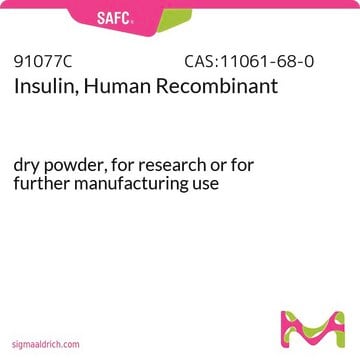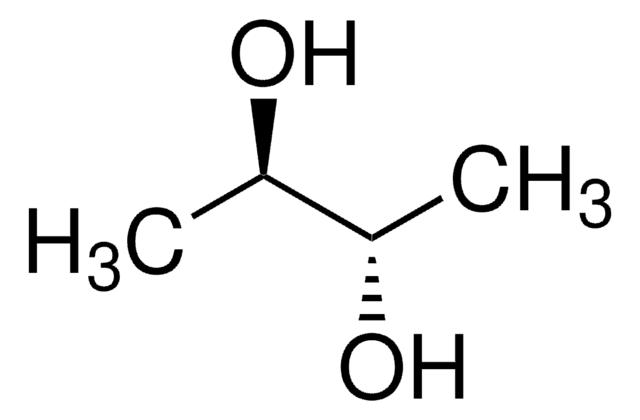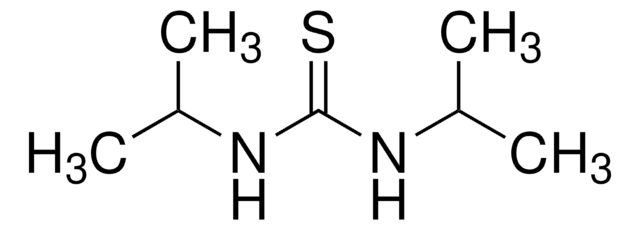W200808
Acetoin
primarily dimer, ≥95%, FG
Synonyme(s) :
3-Hydroxy-2-butanone, Acetylmethylcarbinol
About This Item
Produits recommandés
Source biologique
synthetic
Niveau de qualité
Qualité
FG
Fragrance grade
Halal
Kosher
Agence
follows IFRA guidelines
Conformité réglementaire
EU Regulation 1223/2009
EU Regulation 1334/2008 & 178/2002
FDA 21 CFR 117
FDA 21 CFR 182.60
Pureté
≥95%
Indice de réfraction
n20/D 1.417 (lit.)
Point d'ébullition
148 °C (lit.)
Pf
15 °C (monomer)
90 °C (dimer) (lit.)
Solubilité
acetone: soluble(lit.)
water: soluble(lit.)
Densité
1.013 g/mL at 25 °C (lit.)
Application(s)
flavors and fragrances
Documentation
see Safety & Documentation for available documents
Allergène alimentaire
no known allergens
Allergène de parfum
no known allergens
Propriétés organoleptiques
butter; creamy; cheesy
Température de stockage
2-8°C
Chaîne SMILES
CC(O)C(C)=O
InChI
1S/C4H8O2/c1-3(5)4(2)6/h3,5H,1-2H3
Clé InChI
ROWKJAVDOGWPAT-UHFFFAOYSA-N
Vous recherchez des produits similaires ? Visite Guide de comparaison des produits
Catégories apparentées
Description générale
Application
- Role of Volatile Organic Compounds Produced by Kosakonia cowanii Cp1 during Competitive Colonization Interaction against Pectobacterium aroidearum SM2.: This study investigates the role of volatile organic compounds, including acetoin, produced by Kosakonia cowanii Cp1 in inhibiting Pectobacterium aroidearum SM2, highlighting the potential of acetoin in biocontrol applications (Mena Navarro et al., 2024).
- Chemical imitation of yeast fermentation by the drosophilid-pollinated deceptive trap-flower Aristolochia baetica (Aristolochiaceae).: The research explores how Aristolochia baetica mimics yeast fermentation, including the production of acetoin, to attract drosophilid pollinators, emphasizing acetoin′s role in plant-pollinator interactions (Rupp et al., 2024).
- Investigating the impact of various sorghum types on the key aroma compounds of Sichuan Xiaoqu Baijiu through application of the sensomics approach.: This study examines how different sorghum types influence the key aroma compounds, including acetoin, in Sichuan Xiaoqu Baijiu, demonstrating acetoin′s significance in food and beverage flavor profiles (Ma et al., 2024).
- Regulation of Tetramethylpyrazine Formation by the Phenolics-Fenton Coupled Redox Cycling System.: The research delves into the biochemical pathways regulated by acetoin in the formation of tetramethylpyrazine, providing insights into its role in flavor compound biosynthesis (Xu et al., 2024).
- Design of a synthetic enzyme cascade for the in vitro fixation of formaldehyde to acetoin.: This paper presents the development of a synthetic enzyme cascade to convert formaldehyde to acetoin, showcasing its potential in biotechnological applications for formaldehyde detoxification (Cui et al., 2024).
Informations légales
Mention d'avertissement
Warning
Mentions de danger
Conseils de prudence
Classification des risques
Eye Irrit. 2 - Flam. Sol. 2 - Skin Irrit. 2
Code de la classe de stockage
4.1B - Flammable solid hazardous materials
Classe de danger pour l'eau (WGK)
WGK 1
Équipement de protection individuelle
Eyeshields, Gloves, type P3 (EN 143) respirator cartridges
Faites votre choix parmi les versions les plus récentes :
Déjà en possession de ce produit ?
Retrouvez la documentation relative aux produits que vous avez récemment achetés dans la Bibliothèque de documents.
Les clients ont également consulté
Notre équipe de scientifiques dispose d'une expérience dans tous les secteurs de la recherche, notamment en sciences de la vie, science des matériaux, synthèse chimique, chromatographie, analyse et dans de nombreux autres domaines..
Contacter notre Service technique












